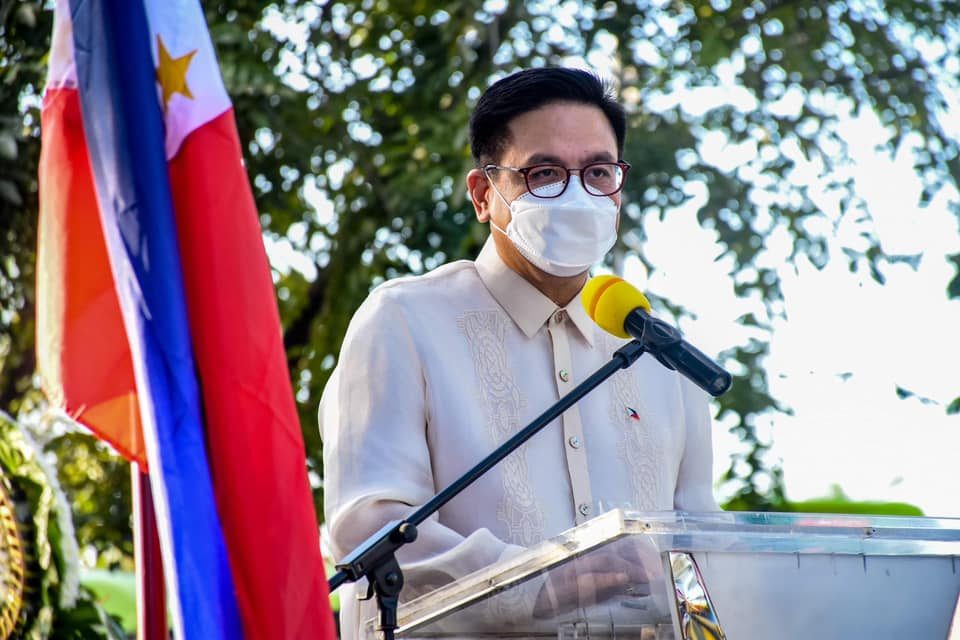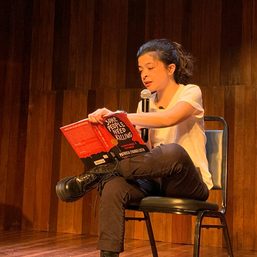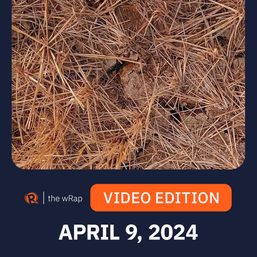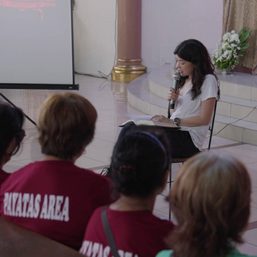SUMMARY
This is AI generated summarization, which may have errors. For context, always refer to the full article.

Just like in the controversial anti-terror law, Muntinlupa Representative Ruffy Biazon withdrew his support for the House bill providing for legal presumptions on who is considered an importer, financier, or protector of illegal drugs.
On Wednesday, March 3, Biazon told Rappler that he not only voted against House Bill (HB) No. 7814, but he also moved to withdraw his name as a primary author of the measure introducing amendments to Republic Act No. 9165 or the Comprehensive Dangerous Drugs Act of 2002.
Biazon said the version of the bill he filed way back in 2019 did not contain the controversial provisions that essentially presumes the guilt of drug suspects upon apprehension.
“The bill that I filed did not contain provisions that would institutionalize presumption of guilt, a proposal that I believe is a contradiction to the right of innocence until proven guilty enshrined in the Constitution,” said Biazon.
A total of 188 lawmakers voted in favor of HB No. 7814 on Tuesday, March 2, with only 11 voting against and 9 abstaining from the vote.
This is the second time that Biazon – a known advocate for the security sector – took back his support for a bill aiming to strengthen the capacities of law enforcement agencies.
In June 2020, Biazon voted against and withdrew his authorship of the anti-terrorism law since the House merely adopted the Senate version and did not allow its members to introduce amendments.
Critics have warned this law would be used by President Rodrigo Duterte’s government to clamp down on dissenters. The anti-terror law’s constitutionality is now being challenged before the Supreme Court (SC).
Under HB No. 7814, a person is immediately presumed to be a protector or coddler of illegal drugs if he or she knows an importer or exporter and helps the latter evade arrest.
HB No. 7814 also states that a person found in possession of a purchase order, receipt, bill of lading or similar document related to the importation or exportation of illegal drugs “is, until proven otherwise, presumed to have imported or exported” the illegal substances.
The bill likewise presumes a person is a drug financier if he or she would “cause the payment, raises, provides or supplies money for or underwrites” the importation of illegal drugs.
Any evidence showing that money was transferred to a person or entity linked to a drug importer or exporter would be considered “prime facie proof of consent to or knowledge” of the sender, transferor, or issuer.
HB No. 7814 states this presumption may be overturned “upon presentation of proof that the importation or exportation is authorized or valid.”
The bill also proposes a provision stating that “unless proven otherwise,” a person found present in the immediate vicinity of an area where illegal drugs are being sold, delivered, or distributed “is presumed to have been involved” in the illegal drug trade.
Other lawmakers who voted against HB No. 7814 already warned that if it becomes law, a person may be end up going to jail based on “mere presumptions.”
Barbers insists: No presumption of guilt
But House committee on dangerous drugs chair Robert Ace Barbers, a primary bill author, countered criticism that HB No. 7814 presumes the guilt of drug suspects.
He said the burden of proof that a drug suspect is guilty of a crime still rests on the prosecution. The suspect, meanwhile, has the burden to present evidence that the accusations against him or her are wrong.
“The burden of proof is always with the prosecution. It will never shift to the accused. What is now on the accused is the burden of evidence. Burden of evidence and burden of proof are two different animals,” said Barbers in a phone interview.
The Surigao del Norte 2nd District representative also said HB No. 7814 penalizes those who would plant evidence to frame a drug suspect.
“At the end of the day, all these presumptions are not going to be used by the judge. The evidence will still have very strong weight because at the end of the day, it’s the court that will decide whether you are guilty beyond reasonable doubt or not,” said Barbers.
He denied accusations HB No. 7814 would violate the presumption of innocence of an accused enshrined under the Constitution.
“In fact, even the Supreme Court has decided on several cases that in these legal presumptions being proposed, they are not violative of the constitutional guarantee of presumption of innocence,” Barbers said in a mix of English and Filipino.
Duterte has been criticized for waging his bloody campaign against drugs, where thousands of drug suspects have been killed in legitimate police operations and vigilante-style killings.
Rappler’s investigations have showed a systemic delay in the criminal probe into these drug-related deaths. Police reports on anti-drug operations submitted to the SC were also poorly documented, casting doubt on the legitimacy of Duterte’s drug war. – Rappler.com
Add a comment
How does this make you feel?





There are no comments yet. Add your comment to start the conversation.